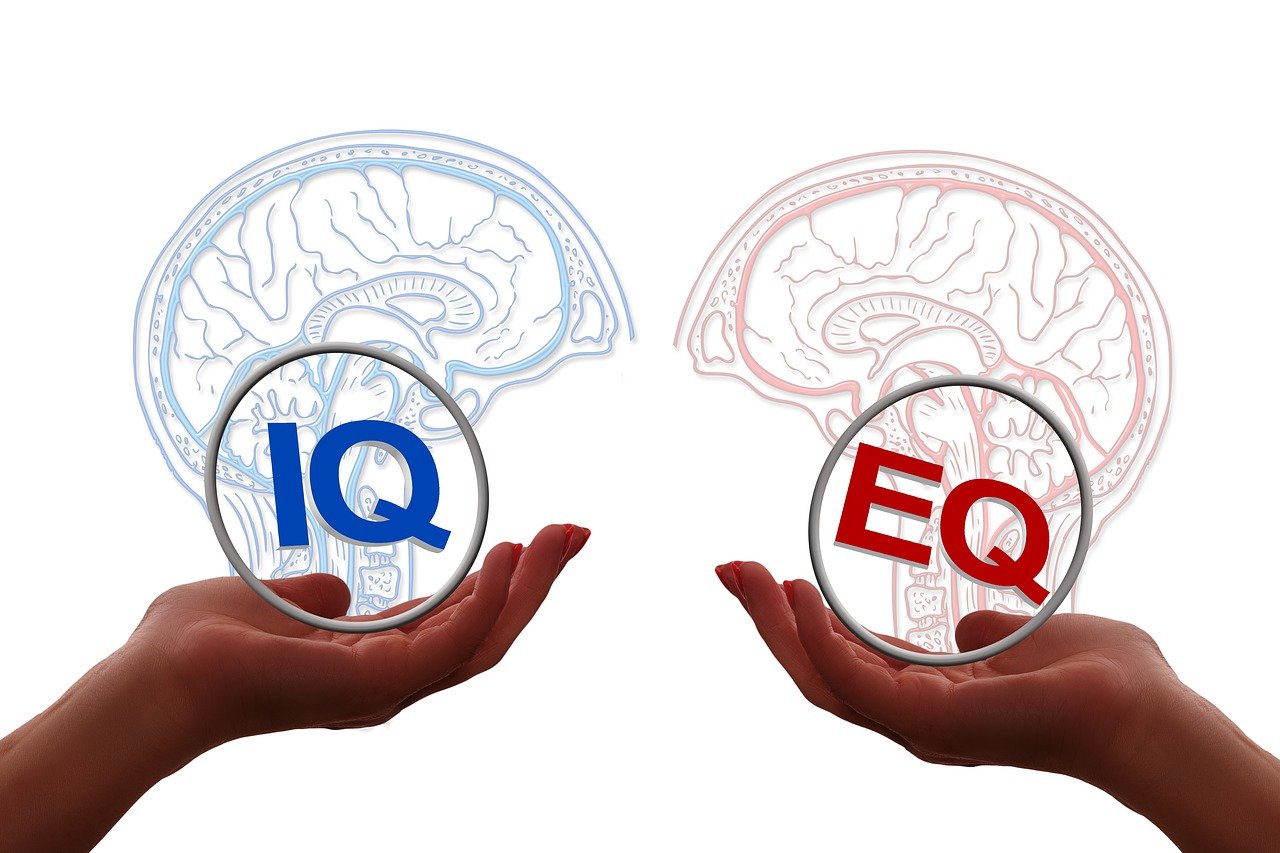Emotional Intelligence: Your True Superpower
Introduction:
In a world that never stops buzzing—pushing us to achieve more, hustle harder, and move faster—we’ve quietly sidelined our most human superpower: Emotional well-being.
We celebrate high IQs. We applaud high marks, trophies, and talents. We chase prestigious degrees, big goals. We measure success in productivity and paychecks — and that’s okay.
But there’s something just as important — maybe even more important — that doesn’t always get talked about:
- How we’re really feeling.
- How we understand and handle our emotions – That’s called Emotional Intelligence, or EQ.

What Is Emotional Intelligence?
Emotional Intelligence (EQ), a term made popular by psychologist Daniel Goleman, includes five key parts:
- Self-awareness – Knowing your emotions – ‘what you’re feeling’
- Self-regulation – Managing how you react
- Motivation – Staying driven without external pressure and even without rewards
- Empathy – Understanding others’ emotions or feelings
- Social skills – Building healthy relationships
Emotional intelligence (EQ)—the art of feeling fully without being ruled by feelings—isn’t just another skill.
It’s the quiet force that:
✓ Turns conflicts into connections
✓ Transforms stress into self-awareness
✓ Makes resilience your default setting
In simple words:
It means noticing when you’re sad, angry, or anxious — and knowing how to deal with those feelings in a healthy way.
- It means being kind to yourself, staying calm when things go wrong, and caring about how others feel too.
- In a world full of pressure, emotional strength helps you stay grounded, happy, and strong inside.
- It helps you bounce back from tough days and build better relationships — with your friends, family, and most of all, with yourself.
In an age of AI and automation, this is the one advantage machines can’t replicate:
The ability to navigate the beautiful, messy human experience—and help others do the same.
So yes, being smart is great. But being emotionally smart? That’s what truly helps you grow, connect, and live a life that feels good on the inside.
The best part? Unlike IQ, which is mostly fixed, EQ can be nurtured and grown—at any age. EQ grows every time you choose to:
- Pause instead of react
- Listen instead of fix
- Honor your limits instead of glorify burnout
This isn’t just about ‘managing emotions’—it’s about reclaiming the wisdom we’ve always carried within.”
Why EQ Matters Now More Than Ever
Today, emotional intelligence isn’t just helpful—it’s essential.
- Mental health issues are rising across all age groups, but especially among young people. Anxiety, stress, and emotional burnout are becoming far too common. Emotional intelligence helps by teaching us how to recognize our feelings, manage them in healthy ways, and avoid getting overwhelmed.
- Social media shows us perfect lives, edited photos, and highlight reels. This creates emotional confusion and a constant urge to compare ourselves. Emotional intelligence teaches us to see past the filters, stay grounded in reality, and remember that our worth isn’t defined by likes or followers.
- Kids today are growing up in a fast-paced, high-pressure world — with competition in schools, sports, and even friendships. EQ gives them real tools to face challenges: to bounce back after a bad grade, handle peer pressure without losing themselves, and stay kind even when things get tough.
In short, emotional intelligence is no longer just “a nice thing to have” — it’s a lifeline. It helps children grow into strong, kind, and confident adults, and it helps adults lead calmer, more connected, and meaningful lives.

What Studies Show
✅ A 2024 New Zealand longitudinal study tracked 1,000 individuals from childhood and found that high emotional intelligence (EQ) during early years—not IQ or academics—was the strongest predictor of adult financial stability, empathy, and decision‑making
✅ According to an article written By Carly Hines; Business leaders today value EQ over technical knowledge: companies invest in employees who can communicate clearly, navigate stress, bounce back from failure, and collaborate effectively—skills rooted in emotional awareness and resilience
✅ The World Economic Forum’s 2025 Future of Jobs Report lists resilience, self-awareness, empathy and leadership—core components of EQ—as top in‑demand skills for future careers
👉 In simple terms: Being emotionally strong and self-aware might matter more than being good at exams.
For your child, their ability to handle failure or rejection with calm and confidence may take them further than top grades.
And for adults, knowing how to manage stress, solve conflicts, and stay emotionally grounded could be more valuable than even your college degree.
Raising Emotionally Intelligent Children
Here’s the truth no one tells us:
- The smartest people can still feel lost.
- The most successful ones still break down.
- Even the busiest achievers sometimes wonder, “Is this all?”
Because raw intelligence alone can’t:
- Comfort a friend or anyone in pain
- Stop you from saying something hurtful in anger
- Recognize when your body needs rest
- Make you feel whole
But emotional intelligence can.
Here’s how to build it in children (and in ourselves):
- Normalize emotional expression – Let kids talk about feelings without judgment.
- Model calm behavior – Teach by example when things go wrong.
- Praise effort, not perfection – Build their internal motivation – Help kids feel proud of trying.
- Show empathy – Be fully present when they’re upset, and guide them to care about others’ feelings too.
- Encourage reflection – Help them notice how their actions affect others.
Children raised with emotional intelligence grow into resilient, grounded, and kind adults—the kind the world deeply needs right now.
The Takeaway
In a world where stress is constant, burnout is common, and mental health is fragile—emotional intelligence is the new survival skill.
It’s not about hiding emotions. It’s about:
- Staying strong, soft, kind, and clear—all at once
- Understanding them
- Managing them wisely
So let’s stop chasing perfection, and start building emotional strength—within ourselves, and in the children we raise.
Because in the end, how we feel, process, and connect — that’s what truly shapes the quality of our lives.
There’s so much more to emotional intelligence than we can cover in one post. As we continue this journey, I’ll be writing about each aspect in more detail — like empathy, self-regulation, social skills, and more. I hope you’ll join me on this journey.
I’d love to hear your thoughts — on this topic or anything else that’s on your heart. We’re in this journey together, and your voice might be just what someone else needs to hear today.
Let’s keep the conversation going.
With warmth and presence
The Artful Voyage